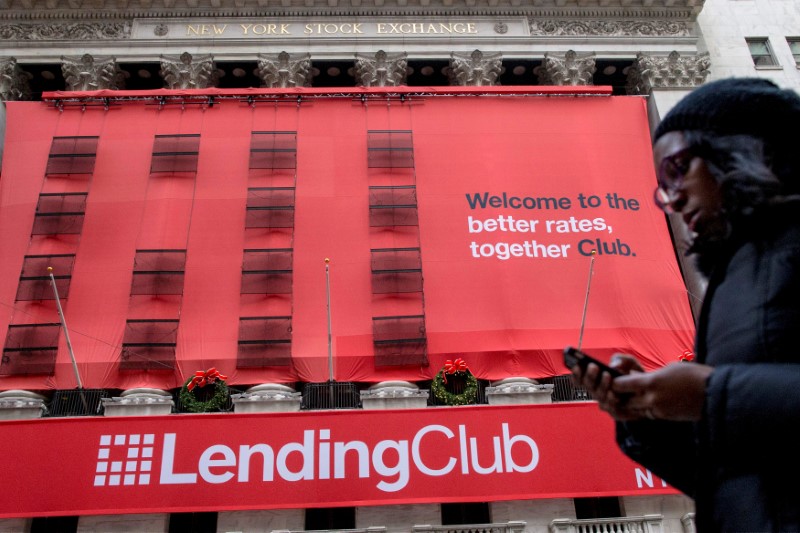By Anna Irrera and Diptendu Lahiri
(Reuters) - Online lender LendingClub Corp (N:LC) raised its earnings outlook on Monday after reporting the second-highest quarterly revenue in its history and a drop in costs, sending shares up nearly 8 percent.
Net revenue rose 35 percent to $139.6 million in the three months ending in June, beating analysts' average estimate of $136.4 million, according to Thomson Reuters I/B/E/S.
LendingClub now expects full-year total net revenue to be in the range of $585 million to $600 million, compared with its earlier forecast of $575 million to $595 million.
Shares of the company, which connects consumers looking for loans with individual or institutional investors such as banks through its website, were up 7.8 percent at $5.46 in after-hours trading.
San Francisco-based LendingClub has been on recovery mode since May 2016, when an internal investigation into a series of loan malpractices led to the ouster of then-Chief Executive and founder Renaud Laplanche.
The incident drove banks and other investors off the platform and caused the volume of loans originated through the company to drop.
Originations returned to growth in the second quarter, up 10 percent to $2.15 billion, the company said.
At the same time the company's operating expenses fell 12.5 percent to $165.1 million in the quarter.
Chief Executive Scott Sanborn said in a conference call that the company was "back on our front foot."
"Feels great to get management focused back on executing the business," he said.
Problems emerged for LendingClub last year when it acknowledged it altered documentation when selling $22 million in loans to investment bank Jefferies Group. The loans were later repurchased by LendingClub.
Since Sanborn took over in June last year, LendingClub has made efforts to win back the trust of investors, bank lenders and other partners who had taken a step back from doing business with the company.
LendingClub reported a net loss of $25.5 million, or 6 cents per share, for the second quarter ended June 30, compared with a loss of $81.4 million, or 21 cents per share, a year earlier.
On an adjusted basis, it lost 1 cent per share, in line with average analysts' estimate, according to Thomson Reuters I/B/E/S.
